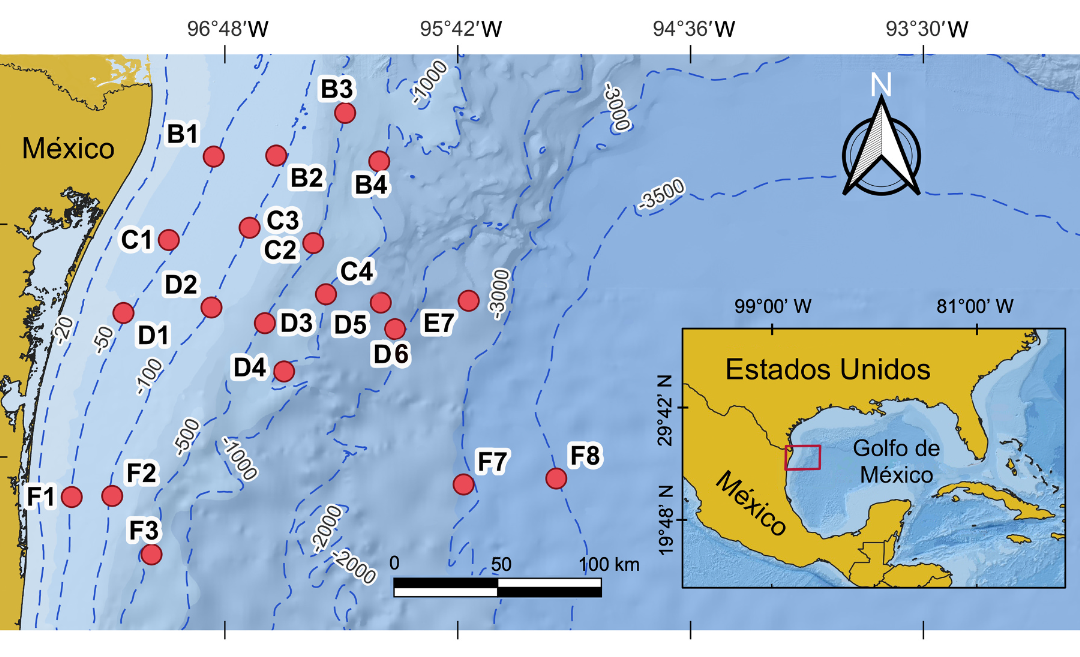Authors: M.E. Vega-Cendejas, M. Hernández de S., A. Chi-Espínola & R. Aguilar-Medrano
Abstract: The Perdido Fold Belt, located in the Western region of the Gulf of Mexico presents great interest due to its
potential oil production, which poses great risks to its marine biodiversity. The objective of this study was to record fish diversity, evaluate its variations along a depth gradient from 43.3 m to 3608.0 m, and determine species assemblages, as a baseline prior to natural or anthropogenic impacts. This information is basic for the evaluation and monitoring of the health of the Gulf of Mexico, which will be linked to the anthropogenic influence caused by hydrocarbon extractive processes and overfishing.A total of 63 sampling collections were made at 20 stations during four oceanographic campaigns (May 2016, September-October 2016, June 2017, September-October 2017). Trawling was conducted with a benthic sled on a stratified depth gradient design. A total of 170 fish species within 69 families and 26 orders were recorded. Multivariate analysis revealed three fish assemblages through the depth gradient, shelf (<300 m), upper slope (400–600 m), and the deep zone (>800 m). Both, fish abundance and species richness were highest on the shelf and decreased to the deep regions, where species were scarce and rare. However, considering the benthode-mersal community two assemblages were determined at depths < 300 m and from 400 to 1423 m, where specific differences in species abundance were found. The most abundant species recorded on the shelf was Syacium gunteri, on the upper slope Trichopsetta ventralis and Serrranus atrobranchus, and in the deep zone Cyclothone alba and Cyclothone pseudopallida. Some of the recorded fish species are in the Vulnerable category and others are in the Data Deficient category. Our study will contribute to the management and protection of this region where hydrocarbon exploration activities are recently taking place.
Key words: Deep Sea fish, Depth gradient, Diversity, Importance Value Index, Fish associations, Gulf of Mexico


Recent Comments